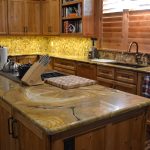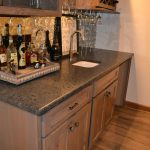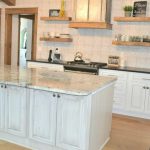While you can cut directly on some stone countertops, it is not recommended. Granite is one of the most durable countertop materials you can buy, and it can certainly withstand cuts from a knife blade. However, if your granite has...
Read More
Quartz Countertops Quartz countertops are the easiest natural stone to take care of. They are engineered using ground stone and resin, so they don’t require regular sealing they way most granite and marble countertops do. This stone is non-porous, so...
Read More
Most granite is very stain resistant and does not “require” sealing. However, sealing is an added precaution, and many fabricators and installers do recommend it. Quality Granite & Marble typically makes this determination, and applies sealer when needed. A general rule used...
Read More




